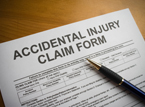1–781–438–6600

Medical Malpractice
STANDARD OF PROOF
It is important to realize that, just because you may have had a bad result in your medical treatment, it does not necessarily indicate that you may have a medical malpractice case. There may be many reasons why you did not get well or why you may even seem to be worse after treatment. Nevertheless, you are entitled to recover against the doctor only when the bad result was caused by their negligence.
In order to recover in a medical malpractice case, the burden of proof is always on the patient to prove that the doctor negligently failed to follow the standards of practice of other doctors in the same field, with the same education, training and experience.
The law requires the doctor to take a proper medical history, to do a reasonable physical examination and to order tests which are necessary under the circumstances. If consultation with a specialist is necessary, the doctor may become liable for not recommending such consultation. In any case, the doctor will only be liable to provide the reasonable services and treatment, which are reasonably available to the doctor (For example, a doctor in a small town cannot be held liable for failing to provide services which may be available only in a larger, more sophisticated medical community).
After hearing your complaints and making reasonable tests, the doctor must make a “diagnosis”. If the doctor makes a wrong diagnosis, the doctor may or may not be liable. The doctor will not be held liable if other reasonable doctors under those same circumstances could have made a wrong diagnosis based on your symptoms and test results.
After the doctor has made a diagnosis, the doctor must use his/her best judgment to select a proper course of treatment. Although other doctors may have selected a different type of treatment, your doctor is liable only is he/she did not follow a course of treatment thought to be reasonable by some doctors. Once again, the mere fact that your treatment was not successful is not enough to prove a medical malpractice case.
Ordinarily, to prove your case, you must have an “expert witness”, another doctor willing to testify that he/she knows the standards of care in your case, and further that your doctor did not follow those standards, resulting in your injury. As you can imagine, it is difficult to find one doctor who will testify against another. Frequently you must go out of the state to locate such a doctor. This alone makes malpractice cases very expensive to pursue.
EXPERT WITNESS
Only a doctor is qualified to render an expert medical opinion regarding medical malpractice. The law requires that to be able to win a medical malpractice case, you must have a medical doctor willing to testify and explain why you have a case. After an initial evaluation and if we feel that your case is worth pursuing, we will then obtain an expert medical opinion.
A doctor must review your case and testify if necessary. They will not, however do so until they are paid their fees in advance of their services.
We do not charge legal fees for investigating your case. We charge only for out-of-pocket expenses during the investigation, such as expert fees. If we obtain sufficient evidence from the expert to continue with your case, we will then discuss legal fees and additional expenses with you before accepting your case or filing suit.
MEDICAL MALPRACTICE TRIBUNAL
After suit is filed, Massachusetts law requires that a medical malpractice case be heard by a medical malpractice tribunal (a panel of three {3} persons, typically a judge, a lawyer and a physician). At the tribunal we must present expert witness support, usually by submitting a written report from the expert, that the case has a reasonable likelihood of success. Thus, it is imperative that a written expert opinion is obtained before filing suit. If the tribunal decides that there may be negligence and therefore a likelihood of success, then your case is allowed to proceed through the Court system to trial without any bond requirement. However, the other option available to the tribunal is a decision that there may have been an “unfortunate medical incident” but that it does not rise to the level of negligence. If the tribunal determines that it is an “unfortunate medical incident” your case will be dismissed and if you wish to prevent a dismissal, a bond must be posted with the Court. (The current bond is $6,000.00 per party that you have named as a defendant in a medical malpractice case). For example, a case against a doctor and a hospital would require a $12,000.00 bond if the tribunal decision was not favorable to you and nevertheless you wished to proceed with the case in spite of the tribunal’s decision.
Next, we must prove that the doctor’s breach of the standards of care caused the injuries and damages which you claim.
Although your doctor may have been negligent, he/she is not liable for illness, sickness or damages which you might have had even if you had not seen the doctor. In other words, if you were sick or injured when you went to the doctor to start with, the doctor is not liable for that complaint, nor is he/she liable for any further illness or damage, which was the natural result of your condition. We often see cases where the doctor originally makes a wrong diagnosis, such as failing to see a fracture on an X-ray. Nevertheless, if this doctor or someone else very soon realizes the error and undertakes the proper treatment, the doctor will probably not be liable, since you will have suffered no additional damages from the erroneous diagnosis.
If your original condition was incurable or untreatable, then you will not be able to recover for medical malpractice. We see this often in cases in malignancy, which are fatal, regardless of when they are found.
Very often complications occur during treatment which are not the result of negligence. For instance, you may suffer side effects of drugs, which are absolutely necessary for your treatment. The mere fact that you have a reaction is not enough to entitle you to recover. These are what are known as “acceptable complications” and if other doctors agree that they are “acceptable”, we may not be able to help you. In a similar case, however, the doctor would be liable if there was a known reason to not give you the drug which caused the side effects (such as an allergy or existing medical condition).
If we are able to prove that your doctor was negligent and that the doctor’s negligence caused you some injury, then we must prove what damages occurred to you from the doctor’s negligence and what these damages are worth financially.
If we are able to prove your right to recover, there are certain items of damage which you are entitled to recover. Some of them are:
1. Past, present and future pain and suffering;
2. Past and/or future loss of income or earning capacity;
3. Out-of-pocket expenses, such as past and future medical bills, hospital bills, drug bills, etc. You may be entitled to recover these damages even though you had insurance to cover them; however, some insurance companies may require you to repay the company from your recovery;
4. Loss of enjoyment of life: that is, payment for the fact that you are no longer able to engage in your normal recreational, family and social activities;
5. Mental anguish; and
6. Disfigurement and scarring.
If you are married, then your spouse may also be entitled to recover damages for what is called Loss of Consortium. This is the value of services which you normally rendered to your spouse in the way of companionship, housework, yard work, sexual relations, etc.
As to medical expenses, you may not be entitled to recover all of your expenses. You will be entitled to recover only those expenses over-and-above what your bills would have been even if there had not been medical malpractice. For instance, if you go into the hospital for treatment for which you would have been required to stay for five (5) days, and the medical malpractice causes you to stay an additional five (5) days, you could only recover for the additional five (5) days caused by the medical malpractice. The same is true for your pain and suffering, lost wages, etc. Usually it is very difficult to separate what damages were caused by your original illness and what were caused by the doctor’s negligence, but we have the burden of proving the difference.
CONCLUSION
Medical malpractice cases are very difficult to win before a judge and a jury in Massachusetts. Statistics show that the doctors win a large percentage of the cases brought against them. These cases are always vigorously defended by the doctor and his insurance provider.
There are strict time requirements for filing suit on medical malpractice cases. Failure to file suit in Court within the strict time requirements that apply to your case will bar your right to pursue a claim in the future.
266 Main Street, Stoneham, MA 02180
Phone: (781) 438-6600 - Fax: (781) 942-7034 - richard.woods@comcast.net








